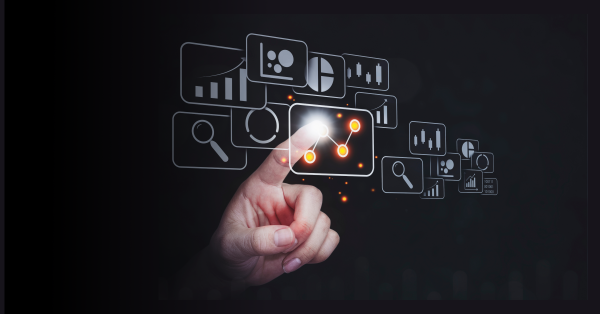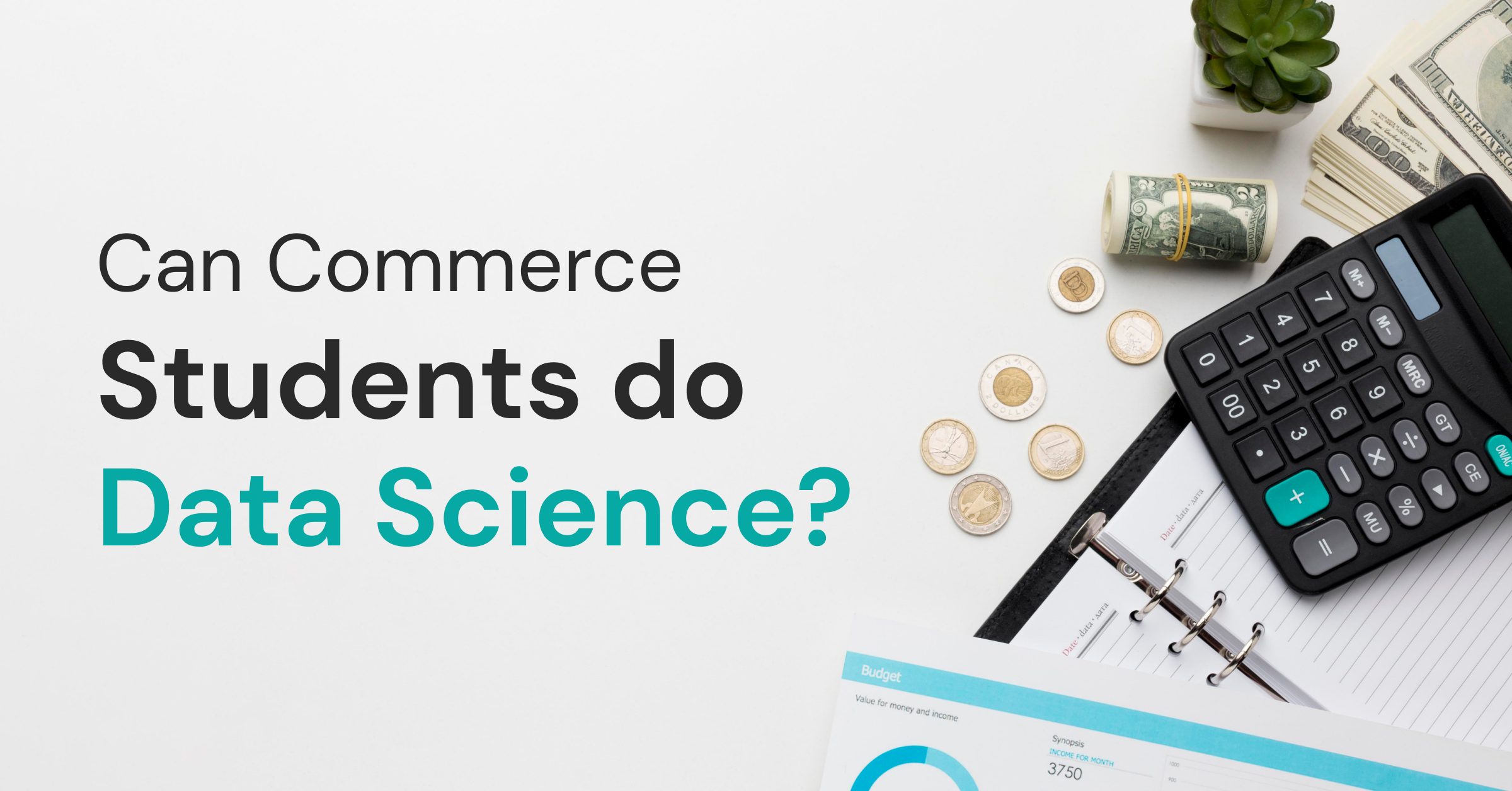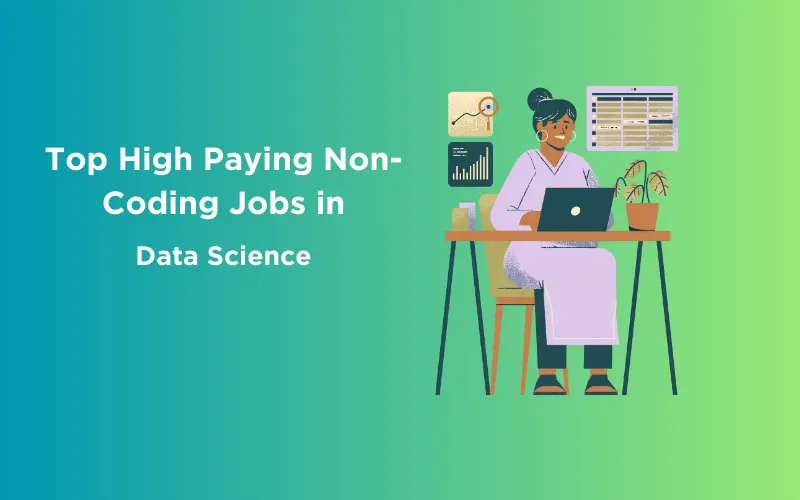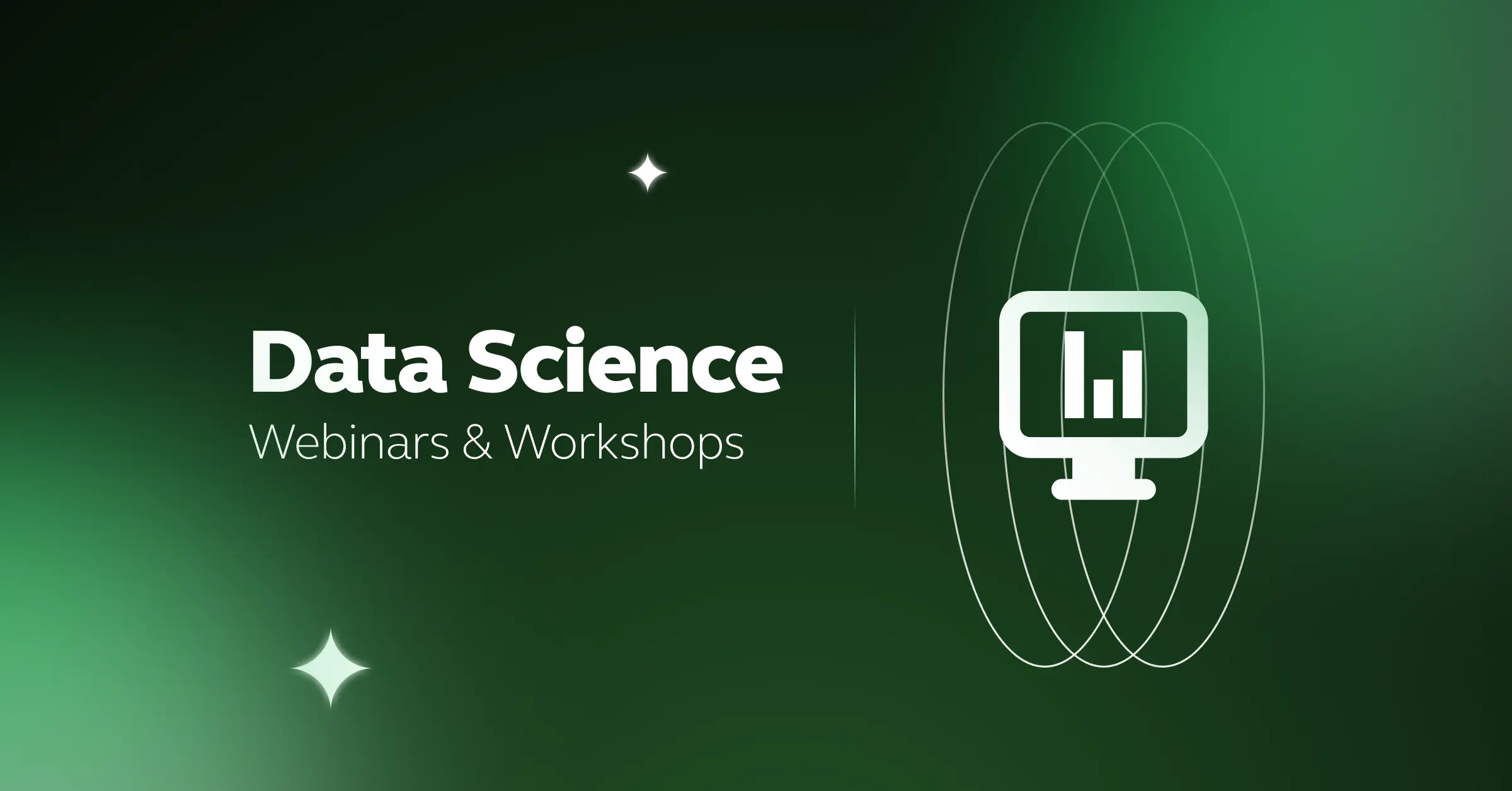
Navigating the Best Datasets for Your Data Science Projects [2024]
Apr 30, 2024 6 Min Read 395 Views
(Last Updated)
Datasets are the backbone of any successful data science project, providing the critical raw material for analysis and insight.
Whether you’re working on Kaggle datasets for a competition, seeking open data for data visualization, or searching GitHub repositories for machine learning projects, the challenge lies in finding datasets that are not only relevant but also rich in quality and utility.
This selection process is pivotal, as the right dataset can significantly influence the direction and outcomes of your endeavors, offering a foundation for predictive models and analytical explorations that tap into real-world applications.
This article will guide you through the maze of options available, helping you to navigate the expansive seas of datasets for projects, and ensuring your efforts are built on solid and informative ground.
Table of contents
- Best Datasets for Your Data Science Projects
- 1) Online Repositories and Platforms
- 1) Google Dataset Search
- 2) Kaggle
- 3) GitHub and Other Platforms
- 2) Government Databases and Open Data Initiatives
- 1) Key Government Data Sources
- 2) Utilizing Open Data for Projects
- 3) Challenges and Considerations
- 3) Industry-Specific Datasets
- 1) Finance and Economics
- 2) Healthcare
- 3) Marketing and Sales
- 4) Public and Crowdsourced Datasets
- 1) FiveThirtyEight and Pew Internet
- 2) Crowdsourced Data on data.world
- 5) Unique and Niche Datasets
- 1) NASA Earth Data
- 2) Specialty Datasets for Predictive Modeling
- 3) Datasets for Machine Learning and Sentiment Analysis
- 6) Machine Learning Competitions and Challenge Datasets
- 7) Open Source Community Datasets
- 1) UCI Machine Learning Repository
- 2) Datahub.io
- 3) Specialized NLP and Cancer Research Datasets
- Concluding Thoughts...
- FAQs
- How do you find data for a data science project?
- How do you collect datasets?
- Are kaggle datasets free?
- How are datasets stored?
Best Datasets for Your Data Science Projects
Let’s read about some of the best datasets for data science projects you should know:
1) Online Repositories and Platforms
Exploring online repositories and platforms is essential for sourcing high-quality datasets for your data science projects.
These platforms offer a diverse range of data, often categorized by industry, making it easier to find data that suits specific project needs.
1.1) Google Dataset Search
Google Dataset Search is a robust tool that helps you discover datasets across the web. It’s particularly useful for finding niche datasets, whether free or paid.
For a broader search, Google Dataset Search acts as an aggregator, pulling in datasets from various online sources. It simplifies the discovery process by providing detailed summaries of each dataset, including:
- Data Overview: Quick summaries describe what each dataset contains, who provides it, and its last update, ensuring you use the most current data available.
- Wide Range: From academic research to government data, this tool covers a vast array of subjects and sources.
1.2) Kaggle
- Kaggle is renowned in the data science community, not only for its competition but also for its extensive dataset repository.
- It hosts thousands of datasets in formats like CSV and XLSX, covering a myriad of industries.
- The platform allows for easy download and provides a collaborative space for discussing and sharing insights, making it invaluable for both learning and practical application in machine learning projects.
1.3) GitHub and Other Platforms
- GitHub is a treasure trove of datasets, ranging from small to extensive collections, suitable for various data analysis needs. It allows filtering by language and keyword, simplifying the search process.
- Other notable platforms include AWS Public Data Registry and Microsoft Datasets, each offering unique datasets accessible for diverse research needs.
- These platforms support a broad spectrum of data types, from text and images to complex statistical data, ensuring resources for virtually any data science project.
Would you like to master Data Science and build an impressive portfolio of projects? Then GUVI’s Data Science Professional with IITM Pravartak Certification in Advanced Programming Course is the perfect choice for you, taught by industry experts, this course equips you with everything you need to know along with extensive placement assistance!
2) Government Databases and Open Data Initiatives
Exploring government databases and open data initiatives offers a treasure trove of data that can significantly enhance your data science projects.
These platforms are not only vast repositories of data but are also often freely accessible, making them an invaluable resource for researchers, data scientists, and policymakers.
2.1) Key Government Data Sources
- Data.gov: This is the central hub for U.S. government data with over 200,000 datasets available. It covers a wide array of topics including climate change, health care, and education. The site is designed to make government data open and accessible to all, fostering innovation and transparency.
- The World Bank Open Data: Free and open access to global development data, easily accessible and usable. It provides tools to visualize and analyze comprehensive data sets covering various sectors such as education, health, and finance.
- EU Open Data Portal: Offers a range of European Union data, allowing you to explore various datasets related to EU policy domains such as economy, employment, science, and environment.

2.2) Utilizing Open Data for Projects
- Transparency and Accountability: Open government data initiatives are crucial for promoting transparency. By accessing these datasets, you can analyze and understand government operations and decisions, thereby holding public institutions accountable.
- Innovation and Economic Growth: These datasets provide a foundation for innovation. Entrepreneurs and companies use this data to create new business opportunities and improve existing products and services.
- Public Engagement: Open data fosters a higher level of civic engagement by making information accessible to everyone. Citizens can use this data to participate more actively in governmental and community affairs.
2.3) Challenges and Considerations
- Data Quality and Reliability: While government databases are rich sources of information, the quality and granularity of data can vary. It’s crucial to verify and validate the data before using it in your projects.
- Privacy and Security: Handling data from government databases requires a careful approach to privacy and security, especially when personal information is involved. Adhering to legal standards and ethical guidelines is essential to maintain trust and integrity in your projects.
By integrating data from these robust sources, you can enhance the scope and depth of your data science projects, driving insights that are both meaningful and actionable.
Also Read: Software Testing vs. Quality Assurance (QA)
3) Industry-Specific Datasets
Industry-specific datasets provide a targeted approach to data science projects, allowing you to delve deep into specific sectors with tailored data.
Understanding the nuances of these datasets can significantly enhance the relevance and impact of your analyses.
3.1) Finance and Economics
- For those interested in financial markets and economic trends, datasets from sources like Data.gov, Nasdaq Data Link, and the Federal Reserve Economic Data offer a treasure trove of information.
- These datasets include historical stock prices, economic indicators, and consumer finance statistics, which are essential for predictive modeling and economic forecasting.
3.2) Healthcare
- The healthcare sector benefits greatly from datasets that include patient records, disease outbreaks, and clinical trial data.
- Notable sources like the WHO Health Statistics and the UCI Machine Learning Repository provide datasets that are crucial for epidemiological studies and machine learning applications in predicting disease trends and treatment outcomes.
3.3) Marketing and Sales
- In the realm of marketing and sales, datasets from Kaggle, the UCI Machine Learning Repository, and specific marketing analytics data platforms offer insights into consumer behavior, campaign effectiveness, and market trends.
- These datasets are invaluable for developing predictive models that enhance customer segmentation and targeting strategies.
Navigating through these industry-specific datasets equips you with the precise tools needed to address unique challenges and opportunities within each sector.
By leveraging the specific types of data available, you can tailor your data science projects to not only meet but exceed expectations in your chosen field.
Also Explore the future of Data Science and How You Can Thrive With It
4) Public and Crowdsourced Datasets
Public and crowdsourced datasets offer a unique opportunity for data scientists and researchers to access a wide array of data points generated and collected by the general public.
These datasets are particularly valuable for projects that require diverse perspectives or data that reflect real-world scenarios.
4.1) FiveThirtyEight and Pew Internet
- FiveThirtyEight provides datasets primarily focused on politics, sports, and culture, which are extensively used in their reporting.
- This transparency allows you to leverage their data for projects involving data visualization and statistical analysis.
- Similarly, Pew Internet offers datasets that delve into media consumption and social media trends, providing insights into digital behavior across different demographics.
These sources are ideal for cultural studies and media-related data science projects.
4.2) Crowdsourced Data on data.world
Data.world hosts a variety of crowdsourced datasets, which include diverse topics such as social media sentiment, economic performance, and consumer behavior. Notable datasets include:
- Sentiment Analysis in Text: Useful for NLP projects aiming to understand emotional undertones in written content.
- Economic News Article Tone: Offers data for analyzing the sentiment and tone in economic reporting.
- Image Sentiment Polarity: Ideal for projects involving image recognition and sentiment analysis.
These datasets are particularly useful for machine learning projects that require labeled data for training models.
By utilizing these crowdsourced datasets, you can enhance the robustness of your analytical models, ensuring they are well-suited to predict or interpret real-world data effectively.
5) Unique and Niche Datasets
Exploring unique and niche datasets can significantly enhance the depth and impact of your data science projects.
These datasets often contain specialized information that is not widely available, providing unique insights into specific phenomena or industries.
5.1) NASA Earth Data
For those interested in environmental and earth sciences, NASA Earth Data offers a rich repository of information. Key datasets include:
- Sea Level Rise: Vital for climate change studies.
- Wildfire Frequency: Crucial for environmental impact assessments.
- Tropical Storms: Essential for weather prediction models.
5.2) Specialty Datasets for Predictive Modeling
Several niche datasets are specifically designed for building predictive models:
- Stroke Prediction Dataset: Utilizes patient demographics and health information to forecast stroke probability.
- Divorce Predictors Dataset: Analyzes survey data from couples to identify factors that may predict divorce.
- January Flight Delay Prediction Dataset: Contains extensive flight data to model and predict flight delays.
5.3) Datasets for Machine Learning and Sentiment Analysis
For those delving into machine learning and sentiment analysis, here are some datasets tailored for these purposes:
- Twitter User Gender Classification: Predict a user’s gender based on their tweets and profile information.
- Large Movie Review Dataset: Ideal for practicing sentiment analysis with reviews to determine positive or negative sentiments.
- Hourly Energy Consumption: Analyze patterns in energy usage to predict future consumption needs.
These datasets not only provide a foundation for technical analysis but also offer opportunities to tackle real-world problems through data-driven insights.
By integrating these specialized datasets into your projects, you can push the boundaries of what can be achieved with data science, ensuring your work remains at the forefront of technological and analytical advancements.
Also Explore: AI vs ML vs Data Science: What Should You Learn In 2024?
6) Machine Learning Competitions and Challenge Datasets
Kaggle stands as a premier platform for machine learning competitions, offering a diverse range of challenges that cater to various domains and complexities.
Here’s a closer look at some of the notable competitions hosted on Kaggle:
- Home Credit – Credit Risk Model Stability: This competition focuses on improving the stability of credit risk models, a critical aspect for financial institutions.
- Learning Agency Lab – Automated Essay Scoring 2.0: Participants develop models to automate the scoring of written essays, enhancing educational assessments.
- Image Matching Challenge 2024 – Hexathlon: A challenge that tests algorithms on their ability to match images across different scenarios, crucial for applications in digital forensics and archival.
- Leash Bio – Predict New Medicines with BELKA: This competition involves predicting the efficacy of new medicines, and accelerating pharmaceutical developments.
- BirdCLEF 2024: Aimed at identifying bird species from audio recordings, this challenge combines ornithology with machine learning.
Kaggle also facilitates community-driven competitions, providing a platform for more specialized and creative challenges:
- Google Smartphone Decimeter Challenge 2023: Enhances GPS precision using machine learning, crucial for navigation technologies.
- ACM AI Tweetiment Analysis: Focuses on sentiment analysis of tweets, a popular task in natural language processing.
- Shaastra Techathon – AI/ML Challenge: Encourages innovative solutions in AI and ML, fostering technological advancements.
DrivenData is another key player, hosting data science competitions that tackle social issues with the backing of major organizations like NASA and Meta AI.
These competitions not only provide datasets but also associated notebooks that detail analysis techniques and algorithms tailored to solve specific prediction problems.
This technical approach ensures participants can learn and apply data science effectively, directly contributing to societal advancements through their solutions.
Also Find Out Exploring the Influence of AI and Machine Learning in Full Stack Development [2024]
7) Open Source Community Datasets
Exploring the wealth of open-source community datasets can significantly enhance your data science projects, particularly when you require specialized or highly technical information.
These datasets are often curated by a community of experts and enthusiasts, ensuring a high level of detail and reliability.
7.1) UCI Machine Learning Repository
The UCI Machine Learning Repository is a critical resource for anyone involved in machine learning. It provides nearly 500 public datasets, which are meticulously categorized to help you find exactly what you need for your project. Key features include:
- Categorization by Task and Data Type: Datasets are organized by the type of machine learning task they’re suited for, such as classification or regression, and by data type, like images or text.
- Historical Depth: Contains datasets dating back to 1987, offering a rich historical perspective for trend analysis and algorithm testing.
- User-Friendly Interface: Designed to help you quickly locate and download the data you need without unnecessary complexity.
7.2) Datahub.io
If your projects involve economic analysis or logistics, Datahub.io should be your go-to. It hosts a variety of datasets with a focus on:
- Economic Indicators: Stock market data, inflation rates, and property prices are available, providing a solid basis for financial analysis.
- Logistical Data: Information on shipping, freight, and logistics can help in optimizing supply chain models.
7.3) Specialized NLP and Cancer Research Datasets
For projects requiring detailed analysis in specific fields such as NLP or cancer research, the following datasets are invaluable:
- NLP Datasets: Includes diverse sources like News Articles Classification, Wikipedia (Simple English), Amazon Product Reviews, and datasets analyzing tweets for depressive sentiments.
- Cancer Research Datasets: Offers specialized data like the Fazekas Detection MRI Dataset and the Colorectal Cancer WSI, crucial for medical research in oncology.
These open-source datasets not only provide the raw data necessary for your projects but also contribute to a broader understanding and innovation in various specialized fields.
By leveraging these resources, you can ensure your projects are both cutting-edge and deeply informed.
Must Read: Basics of NLP: A Beginner’s Guide to Natural Language Processing
Concluding Thoughts…
Throughout this comprehensive article, we’ve gone through many datasets vital for fueling data science projects, highlighting the significance of selecting the right datasets for enhancing study outcomes and project efficiency.
In closing, the exploration of datasets within the field of data science cannot be overstated in its importance for fostering groundbreaking discoveries and innovations.
By carefully considering the source, integrity, and applicability of datasets, researchers and practitioners can considerably elevate the caliber of their work, ensuring it not only meets but surpasses the evolving demands of this rapidly advancing field.
Also Explore: Top 7 Data Science Applications & Use Cases For Businesses
FAQs
How do you find data for a data science project?
Data for data science projects can be sourced from various places such as open data repositories, government websites, academic databases, and web scraping. Read the article above to learn more.
How do you collect datasets?
Datasets can be collected through methods like web scraping, API access, surveys, experiments, and collaboration with other researchers or organizations.
Are kaggle datasets free?
Yes, many datasets on Kaggle are available for free. Users can access and download these datasets for their data science projects.























Did you enjoy this article?